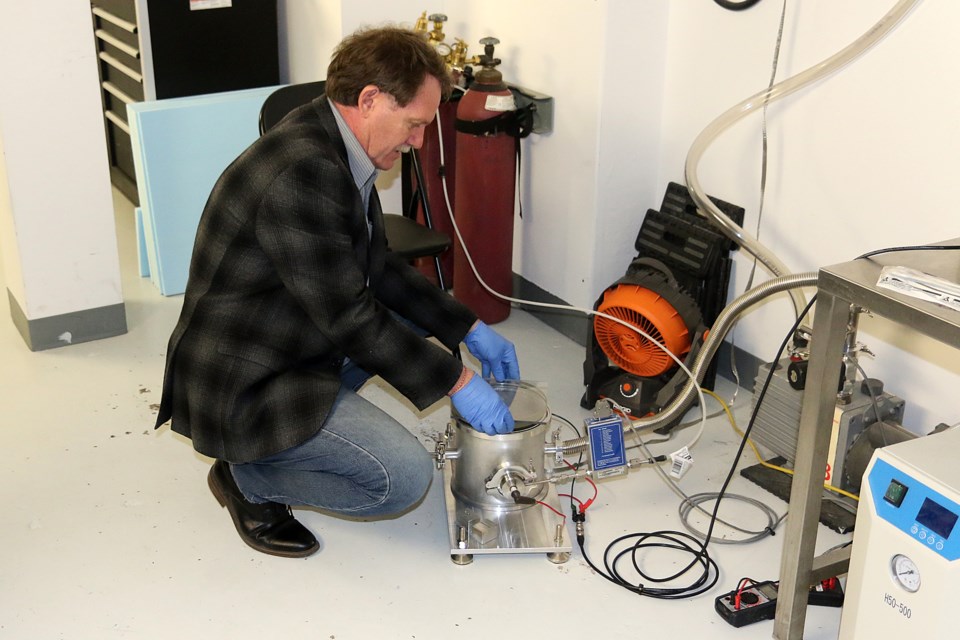THUNDER BAY – On a normal workday, Scott Butcher and his team make gas plasma sources for the semiconductor industry.
It’s complicated work, but an invaluable part of building modern computer chips.
But when the COVID-19 pandemic arrived in Canada and health officials quickly realized they might be facing a massive shortage of personal protective equipment, a light went off in Butcher’s head.
Butcher, chief scientist at Thunder Bay’s Meaglow Ltd., wondered if the technology they were using could be repurposed to re-sterilize N95 masks, stockpiles of the normally throwaway accessory reaching critical lows as the virus takes hold around the world.
“I was looking at the plasma source one day and they were talking about reutilizing equipment to help with COVID-19 and I wondered, could we do it with anything that we have,” Butcher said.
“I knew that plasma sources were used for sterilization in some instances, so I thought, maybe we can investigate that. That’s what we’re trying to do.”
Butcher said the plasma tears apart gases and makes them reactive, not something that normally occurs in nature except at high altitudes.
“It can kill viruses, it can kill bacteria, and that’s well known. It’s just how well we can do it with masks. That’s the big question,” Butcher said.
“So we’ve got a little prototype here that we’ve been using for another project and I thought we could use that for the masks. We just turn the power down so it’s not depositing, it’s just creating plasma that can kill things.”
Butcher said the next step is to test the results.
He’s been talking to Bio-North in Thunder Bay and, if enough capital can be raised, he’s hopeful they’ll do some bacterial testing and then some virus testing.
“And then beyond that, the next step would be to do COVID-19 testing,” Butcher said.
He’s already applied to several sources, including the United States government, for the funding needed to conduct the tests.
If approved, machines could be built in Thunder Bay, a city with plenty of machine time available, and distributed to health-care sites around the world. He estimated they would cost in the neighbourhood of $10,000 to $12,000 apiece.
“We’re looking to share our technology under the right circumstances, to people to get this out there quicker, if it works out,” Butcher said.
“This is something that’s going to affect everyone. I’m in a high-risk category and I have a daughter who is in a high-risk category. So we want to do what we can to help and this is something we can do with the equipment we have.”
